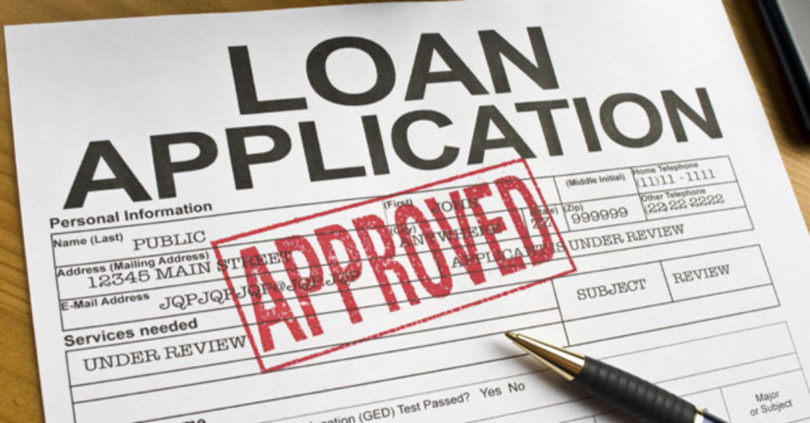Alt A Loans Explained: How They Can Profit Your Economic Journey
Alt A finances represent an one-of-a-kind financing method made for customers that have solid credit history accounts yet might battle to fulfill traditional documents requirements. This adaptability can speed up the approval process and offer affordable rates of interest, making these lendings appealing for home purchases or actual estate investments. Nevertheless, while the advantages are notable, it is vital to inspect individual financial health and the fundamental dangers before continuing. Comprehending the subtleties of Alt A financings could dramatically influence your economic trajectory-- what elements should you think about in this process?
What Are Alt A Loans?
Alt A lendings, positioned between prime and subprime home mortgages, are a classification of funding created for consumers who might not fulfill the strict demands of standard loans. These finances cater to individuals who have good credit rating however might lack the standardized paperwork generally called for by standard lending institutions. This versatility makes Alt A fundings an attractive option for a diverse variety of consumers, consisting of self-employed people, those with variable revenue, or those that have actually experienced short-term monetary troubles.
The key feature of Alt A fundings is their ability to suit alternative types of revenue confirmation, such as financial institution declarations or property documents, instead than depending entirely on income tax return or pay stubs. This difference enables borrowers to access funds more quickly while still maintaining a degree of credit reliability that is superior to subprime lendings.
While Alt A fundings can use advantages such as quicker approval procedures and affordable rate of interest, they likewise feature intrinsic threats. Customers must very carefully consider their monetary circumstance and long-term goals prior to seeking this kind of financing (alt a loans). In general, Alt A lendings supply a crucial pathway for those seeking homeownership or refinancing alternatives without the rigid constraints of standard home mortgage items

Qualification Standards
Recognizing the eligibility standards for Alt A financings is critical for potential debtors seeking adaptable funding alternatives. Alt A financings generally deal with debtors who might have non-traditional earnings sources or a less-than-perfect credit rating background. Specific needs have to be fulfilled to certify.
First of all, debtors generally need a credit scores score ranging from 620 to 740. This array mirrors the adaptability of Alt A loans compared to typical mortgage options.
Another crucial criterion is the documentation of income. While Alt A car loans permit stated earnings, debtors might still need to supply some kind of confirmation, such as financial institution declarations or tax obligation returns. Lending institutions might call for a minimum down repayment, generally in between 10% and 20% of the building worth.
Finally, the home itself need to satisfy particular criteria, consisting of being owner-occupied or a second home. alt a loans. By recognizing these eligibility criteria, potential borrowers can much better evaluate their viability for Alt A financings and prepare their applications accordingly
Advantages of Alt A Fundings
For borrowers that fulfill the eligibility criteria outlined formerly, Alt A financings offer numerous distinct advantages that can enhance their financing alternatives. One main benefit is the flexibility in documentation needs. Unlike conventional loans, which commonly demand comprehensive verification of revenue and possessions, Alt A car loans generally enable debtors to offer limited paperwork. This streamlined procedure can dramatically quicken lending approval, making it an attractive option for those who may have non-traditional earnings sources or self-employment situations.
Furthermore, Alt A finances can use affordable rate of interest and car loan terms, which can be beneficial for borrowers wanting to finance a home or financial investment home. With much less stringent credit report needs compared to prime financings, debtors with good credit rating but unique economic scenarios can still access desirable financing problems.

Threats and Considerations
When taking into consideration Alt A lendings, it is important to acknowledge the possible risks and considerations that accompany these funding choices. One significant danger is the possibility of higher interest prices compared to traditional financings. Since Alt A lendings cater to consumers with less-than-perfect credit report or those who may not totally document their economic scenario, loan providers usually charge a premium to balance out viewed risk.
Furthermore, the kindness in paperwork needs can lead to over-leveraging, where borrowers handle even more financial obligation than they can pleasantly repay. This can result in economic stress, specifically if unforeseen expenditures occur or if the customer's income fluctuates.
An additional factor to consider is the potential for home depreciation. If the real estate market declines, homeowners with Alt A financings might discover themselves owing more than their building deserves, complicating future refinancing or marketing initiatives.
Moreover, regulative modifications can influence the availability and regards to Alt A loans, leaving borrowers prone to market changes. Prospective customers ought to perform extensive research study and consider their economic stability before going after Alt A funding, guaranteeing they fully recognize the ramifications of this financing kind.
Just How to Get Alt A Loans
Looking For Alt A loans calls for cautious prep work and a clear understanding of the procedure, as these finances deal with consumers with varying monetary profiles. To begin, potential consumers need to analyze their monetary circumstance, consisting of credit rating, income stability, and existing financial debts. This first assessment aids to identify qualification and establishes practical assumptions.
Next, it is crucial to gather essential paperwork. Lenders normally need proof of income, tax obligation returns, bank statements, and info pertaining to any kind of other financial assets. Organizing these papers in advance can expedite the application procedure.
Once paperwork is prepared, consumers should research and compare loan providers who provide Alt A finances. This includes assessing rates of interest, car loan terms, and linked charges. Engaging with a home loan broker can additionally assist in and give valuable insights accessibility to different financing alternatives.
After selecting a lender, the application can be sent. Be gotten ready for a comprehensive evaluation, as lending over at this website institutions might still carry out confirmation to examine the borrower's capacity to pay back the finance. Upon approval, borrowers ought to carefully review the lending terms before click for more info shutting, ensuring they fully understand their financial commitment.
Conclusion
)
Alt A car loans, placed between prime and subprime home mortgages, are a category of funding made for borrowers that might not meet the rigid demands of conventional car loans. Unlike typical car loans, which commonly necessitate considerable verification of earnings and possessions, Alt A fundings typically allow customers to give limited paperwork. Generally, Alt A fundings offer a sensible pathway for many borrowers seeking to navigate the intricacies of home funding while optimizing their monetary trip.
Considering that Alt A loans cater to customers with less-than-perfect credit or those who may not totally document their monetary situation, loan providers often charge a premium to balance out viewed danger. - alt a loans
Applying for Alt A lendings requires careful preparation and a clear understanding of the procedure, as web link these finances provide to borrowers with varying economic profiles.
Comments on “Are Alt A Loans the Right Choice for Your Financial Situation?”